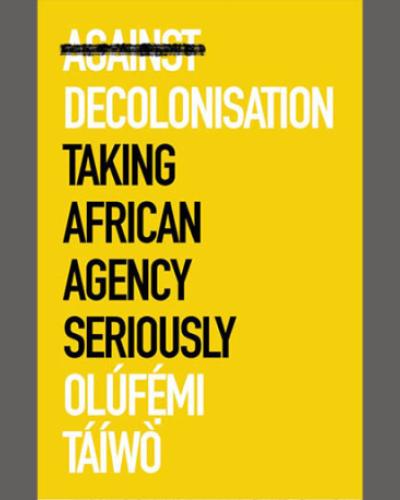 Department Homepage
The College of Arts & Sciences
Department Homepage
The College of Arts & Sciences

Against Decolonisation, Taking African Agency Seriously
Decolonisation has lost its way. Originally conceived as a struggle to escape the West’s direct political and economic control, it has become a catch-all idea, often used to perform contemporary ‘morality’ or ‘authenticity’. In the process, it suffocates African thought, and denies African agency.
Olúfẹ́mi Táíwò fiercely rejects the indiscriminate application of ‘decolonisation’ to everything from literature, language and philosophy to sociology, psychology and medicine. He argues that the decolonisation industry, obsessed with exposing slights and cataloguing wrongs, is seriously harming scholarship on and in Africa. He finds decolonisation as applied to culture intellectually unsound and wholly unrealistic, conflating modernity with coloniality, and groundlessly advocating an open-ended undoing of global society’s foundations. Worst of all, today’s movement attacks its own proclaimed cause: ‘decolonisers’ themselves are disregarding, infantilising and imposing values on contemporary African thinkers.
This powerful, much-needed intervention questions whether today’s ‘decolonisation’ truly serves African empowerment. Táíwò’s is a bold challenge to all concerned for Africa’s future: to resist sweeping moralities, and grant the respect due to African intellectuals as innovative adaptors, appropriators and synthesisers of ideas they have always seen as universally relevant. It’s time to reclaim decolonisation, within the constraints of what is measurable, achievable and desirable.